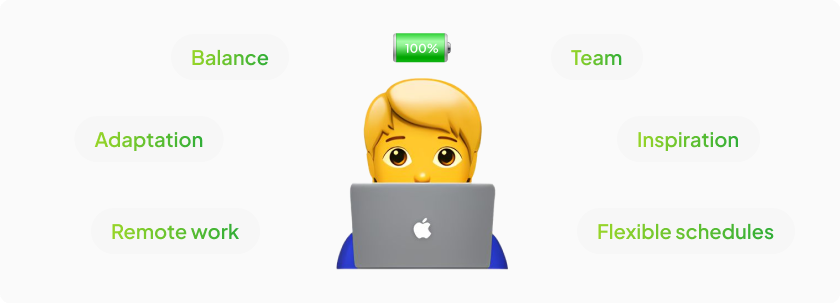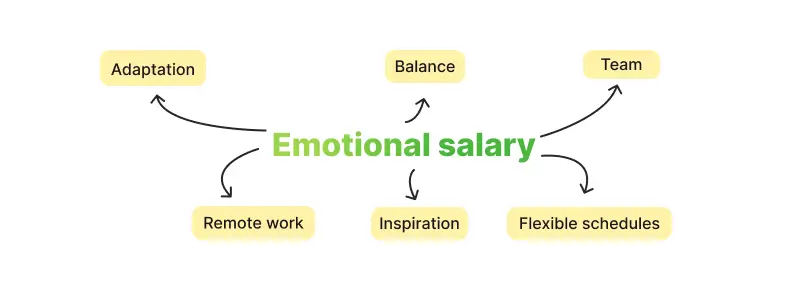
Mental health has become a prominent topic, transitioning from a concern solely within the realm of Human Resources to a broader organizational focus encapsulated by the notion of an “emotional salary.” In times past, a substantial paycheck sufficed to satisfy employees, but today, a growing number prioritize overall well-being and an array of personal benefits.
Prioritizing mental health in the workplace
Ensuring the well-being of your employees’ mental health is crucial. With an average of eight hours spent at the workplace each day, how individuals feel and behave in this environment takes precedence. The impact of work experiences extends beyond the office, influencing personal lives and overall well-being, while also shaping the effectiveness of the organization.
Exploring organizational impact
The contentment and well-being of your workforce, or conversely, the emergence of “Burnout” (professional burnout syndrome), exercise a direct and substantial impact on your company’s operational landscape. There are numerous pivotal aspects:
- Employee morale.
- The level of job satisfaction and contentment among your employees directly impacts overall morale. A positive work environment promotes motivation, teamwork and overall commitment to the organization’s goals.
- Productivity and efficiency.
- Happy and engaged employees are more likely to demonstrate higher levels of productivity. Conversely, burnout and dissatisfaction can lead to inefficiency, mistakes, and overall lower productivity.
- Innovation and creativity.
- A positive workplace culture encourages creativity and innovation. Employees who feel supported and valued are more likely to come up with fresh ideas and solutions, moving the organization forward.
- Retention Rate:
- A satisfactory work environment is a key factor in retaining valuable talent. High employee turnover can be disruptive and costly, affecting continuity and professionalism within the organization.
- Team dynamics.
- The quality of relationships between team members and with management directly impacts collaboration and teamwork. A cohesive and supportive team structure promotes effective communication and project success.
- Organizational reputation.
- A company’s internal dynamics shape its external reputation. A positive work culture enhances an organization’s image, making it more attractive to potential employees, clients and partners.
Emotional salary

Enter the realm of “emotional salary,” a focal point in HR strategy. This concept revolves around benefits organizations provide to enhance employees’ quality of life and, consequently, their emotional well-being. Examples include:
- Flexible schedules
- Continuous learning opportunities
- Remote work possibilities
- Time off benefits
- Wellness programs
- Adaptation of workspace
- Social activities and team building
Incorporating psychological support into the employee benefits package is essential. Companies play a crucial role in aiding employees to harmonize their personal and professional lives.
Emotional salary benefits
- Enhanced well-being.
- Contributes to a positive work environment, fostering happiness and contentment.
- Increased job satisfaction.
- Leads to higher job satisfaction, boosting commitment and motivation.
- Improved mental health.
- Reduces stress and anxiety, enhancing overall mental well-being.
- Boosted morale.
- Recognition programs and positive culture significantly elevate employee morale.
- Improved work-life balance.
- It supports a healthy work-life balance, contributing to increased satisfaction.
- Increased resilience.
- Employees supported by emotional salary benefits are better equipped to overcome challenges effectively.












